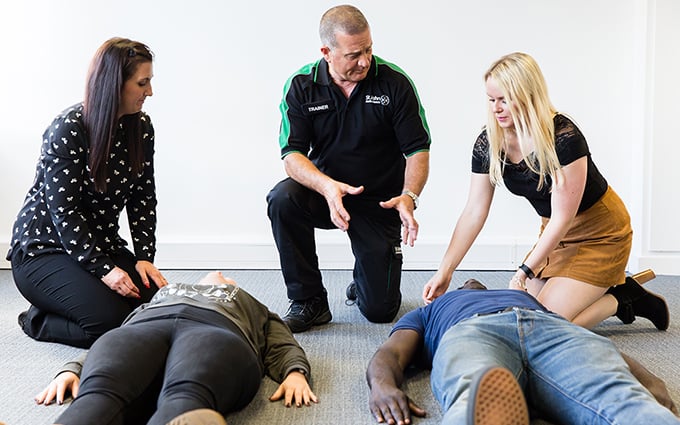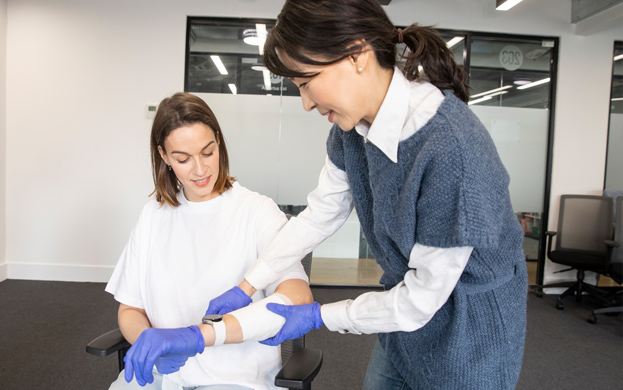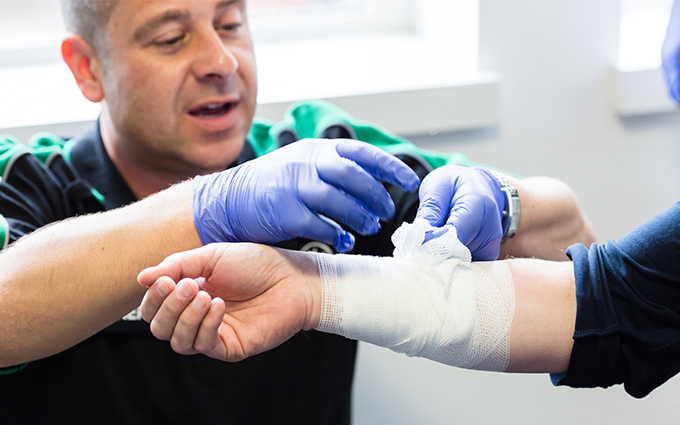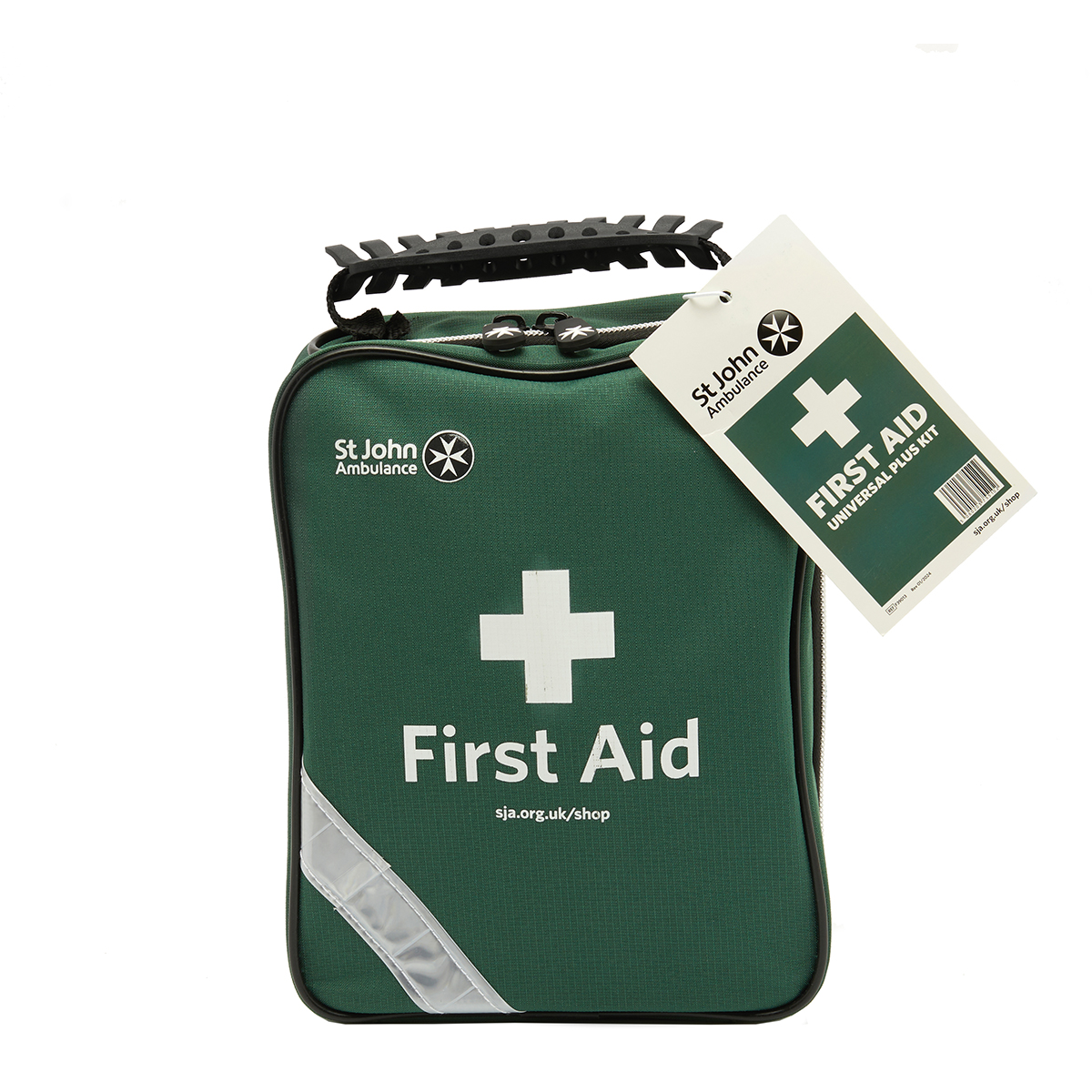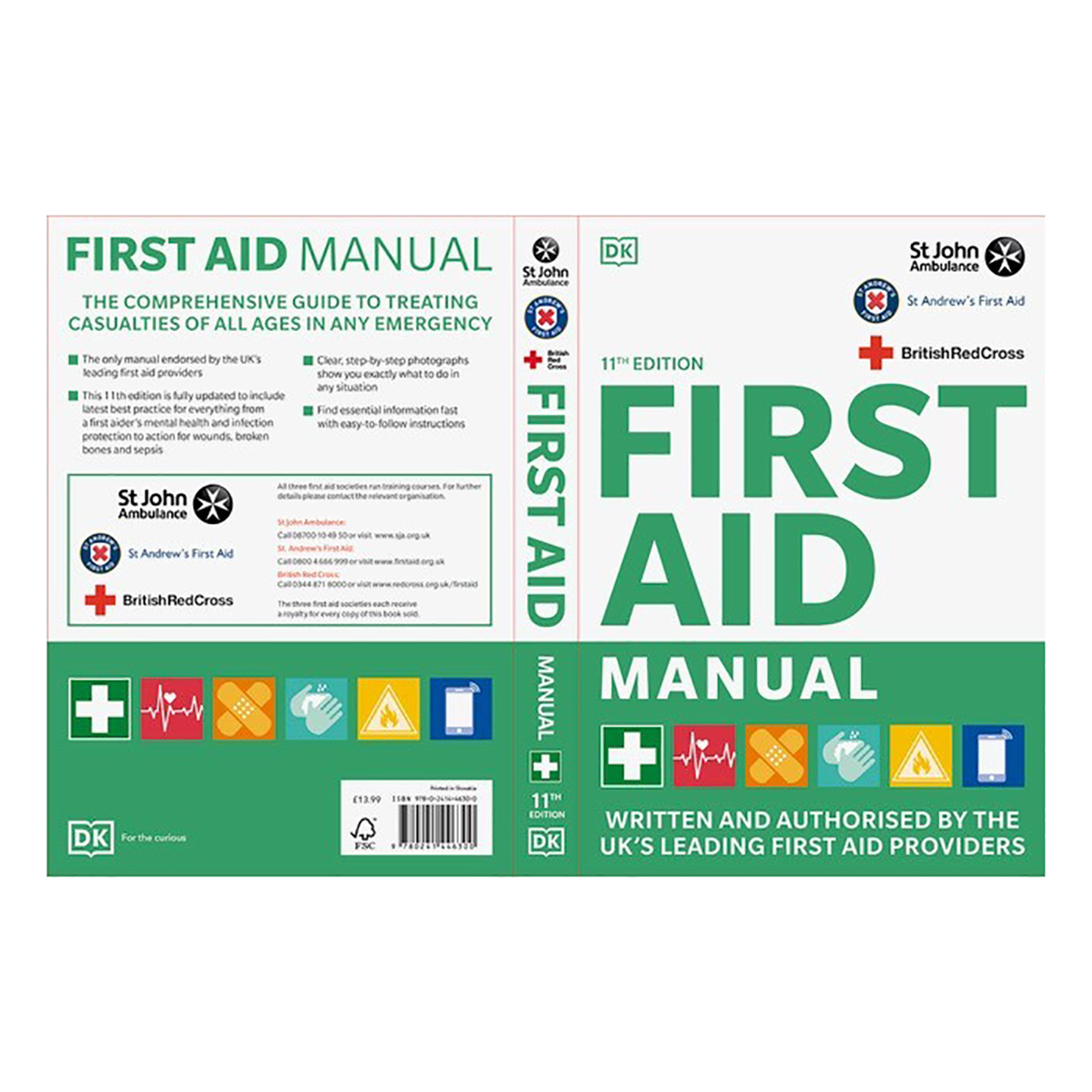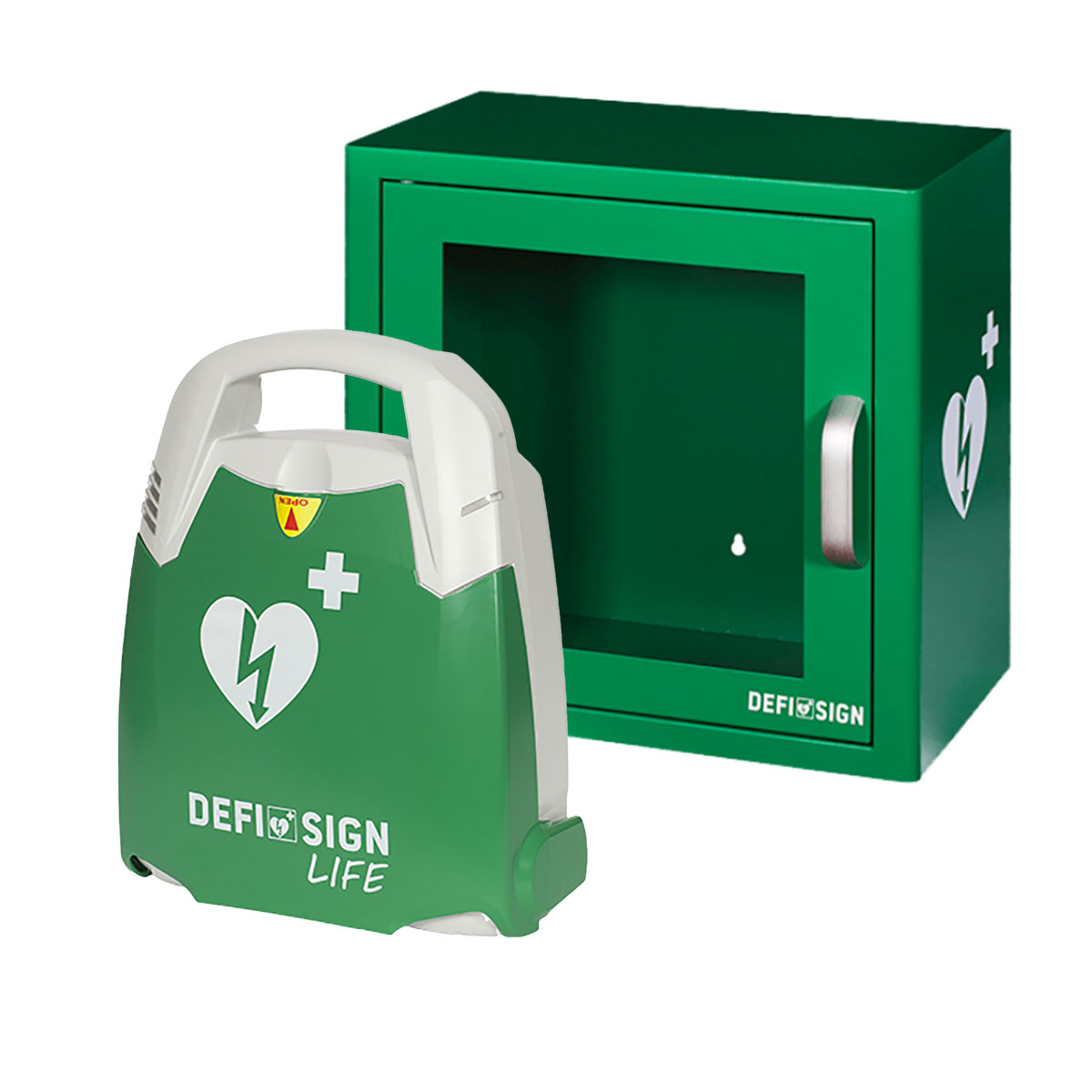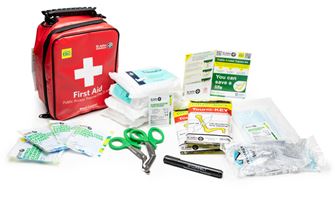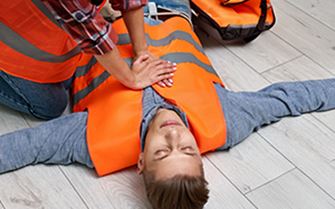Published: 7th July 2025.
Last updated: 7th July 2025.
Author: Cara Sherratt.
Contents

The great British summertime is approaching - the days are longer, and together we can start to climb out of our winter hibernation period. This time of year, means one thing for a lot of people – spending more time outside. Outdoor-based jobs can start to see their peak months as a larger proportion of the UK workforce are starting to be exposed to the increased levels of sun and heat. So, as the likelihood of sunshine and warm days has increased to the usual (unpredictable) British levels… it’s important to understand the potential risks than come with the change in seasons, as well as gaining the First Aid knowledge and skills needed to treat any potential condition.
Workplace Accidents
It is documented that the summer months see an increased rate of workplace injuries, which is due to several contributing factors. Wamer weather encourages outdoor activities, while industries like agriculture and construction reach their peak times. Certain sectors such as hospitality and tourism, often look to expand workforces to deal with the increase in business, however, more employees and short training periods could mean a greater chance of incidents. Whether it be the increase in temperatures or a potential knock-on effect from daylight savings, which results on an average of 40 minutes less sleep for workers, people may find themselves becoming fatigued more quickly, which can lead to decreased concentration and potentially cause more accidents.
Lastly, a contributor towards workplace accidents during summer months could likely be due to an increase in staff taking holidays, which may lead to increased workloads for others. Properly managing rotas, risk and health and safety while ensuring plenty of coverage on remaining team members can minimise employee’s bandwidth being stretched and therefore open to mistakes.
For injuries caused at work, ensure your employer has certified First Aiders who have completed comprehensive training and maintained their knowledge, as well as fully stocked workplace First Aid Kits. If things change seasonally in your workplace, you can use our needs calculator to reassess what cover you need – remember to take into account absence of your trained first aiders who might be on holiday.
Heat and Burns
When approaching First Aid during the summer months it is important to be mindful of the risks associated with heat and burns, especially in a workplace setting that requires employees to spend more time outside. Outdoor work or tasks near machinery, grills, or hot surfaces can increase the chance of heat-related injuries, while long periods in the sun can take its toll and can potentially lead to conditions such as heat exhaustion or sunburn.
Sunburn is a common issue for those working outside – so protection such as wearing lightweight clothes with long sleeves, using suncream and taking breaks in the shade can help minimise any negative impacts.
Burns can also be caused by coming into contact with any tools or surfaces that have been exposed to the sun for too long. If a burn does happen, rinse the area with cool water for at least 20 minutes and cover it with a clean, non-stick dressing. Ensure your workplace has correct signage, basic knowledge, burns posters or First Aid training that can inform employees how to properly treat burns. Encouraging a safety-first mindset and providing regular training on summer hazards can go a long way in keeping everyone safe and healthy on the job.
Heat Stroke, Heat Rash and Heat Exhaustion
During the summer months, workers who spend an increased amount of time outdoors or in poorly ventilated workplace environments may be at risk of experiencing conditions such as heat exhaustion and heatstroke. Heat exhaustion is a condition that affects the body after prolonged exposure to high temperatures, which can be made worse by physical activity. Symptoms of heat exhaustion may include sweating, fatigue, dizziness, nausea and feelings of faintness. If left untreated, heat exhaustion may escalate and lead to a condition called heatstroke, which can lead to life-threatening emergencies. As a starting point to avoid these conditions, employers should consider adjusting work hours to avoid peak heat times as well as provide appropriate personal protective equipment to help mitigate risks. Recognising and addressing the signs of heat exhaustion promptly is crucial to prevent more severe issues.
In addition to heatstroke and heat exhaustion, another condition to consider when reviewing your approach to workplace first aid during the summer months is heat rash. Heat rash, often referred to as prickly heat, is a common skin condition that appears as small red spots or raised bumps. Someone experiencing heat rash may notice a rash made up of tiny red spots, blisters, or bumps. These are often presented alongside a prickling or burning feeling on the skin. The affected area might also feel itchy, and the skin can appear red and slightly swollen. While heat rash is generally not serious, it can be uncomfortable, especially in hot or humid weather, and therefore it is important to learn how to properly treat this condition.
Allergies
There is an increased risk throughout the summer months to individuals who suffer with allergies to things such as pollen, insect bites and stings. With an increase in pollen count affecting thousands of people each year and the suggestion that this season may be starting earlier each year due to changes in climate, being able to prevent, identify and treat allergies is becoming more important than ever. Whether that means learning more about the hidden allergies found in the workplace or by ensuring your workplace is qualified for, or equipped with, emergency equipment such as Kitt Medical’s adrenal pens, it remains crucial that employers and employees are advocating for a safer environment for people at risk of increased allergic reactions.
Dehydration
As summer temperatures rise, preventing dehydration should become a priority in the workplace, no matter if you work primarily indoors or outdoors. Dehydration occurs when the body loses more fluids than it takes in, leading to a shortage of water and salts essential for normal body functions. In hot or humid conditions, the risk increases due to excessive sweating and inadequate fluid intake.
Recognising the signs of dehydration is crucial to being able to treat the condition properly. Symptoms include dry mouth, dark yellow urine, dizziness, and muscle cramps. It's important to note that thirst may not be a reliable indicator, as individuals can be dehydrated before feeling thirsty. As a proactive workplace, employers should encourage colleagues to top up their water intake regularly and provide access to cool water in order to maintain hydration levels.
First Aid Kits
For a summer-ready first aid kit, be sure to include essentials like adhesive bandages, antiseptic wipes, and antibiotic ointment for treating minor cuts and scrapes. Add hydrocortisone cream for insect bites, tweezers for potential splinter or tick removals and plenty of adhesive tape and gauze. Ensure that you check all of your first aid supplies have not exceeded their expiry date so that users can provide proper treatment if required. As always, ensure your workplace First Aiders have had the appropriate First Aid training or are booked in for their refresher course, or requalification course.
Sources
https://national-claims.co.uk/what-time-of-year-are-accidents-at-work-more-frequent
https://www.riskex.co.uk/most-common-summer-workplace-accidents
https://www.mayoclinic.org/diseases-conditions/heat-exhaustion/symptoms-causes/syc-20373250
https://www.mayoclinic.org/first-aid/first-aid-heat-exhaustion/basics/art-20056651
https://www.hse.gov.uk/temperature/employer/dehydration.htm
https://www.theclaimspartnership.co.uk/news/summer-accidents-work/



